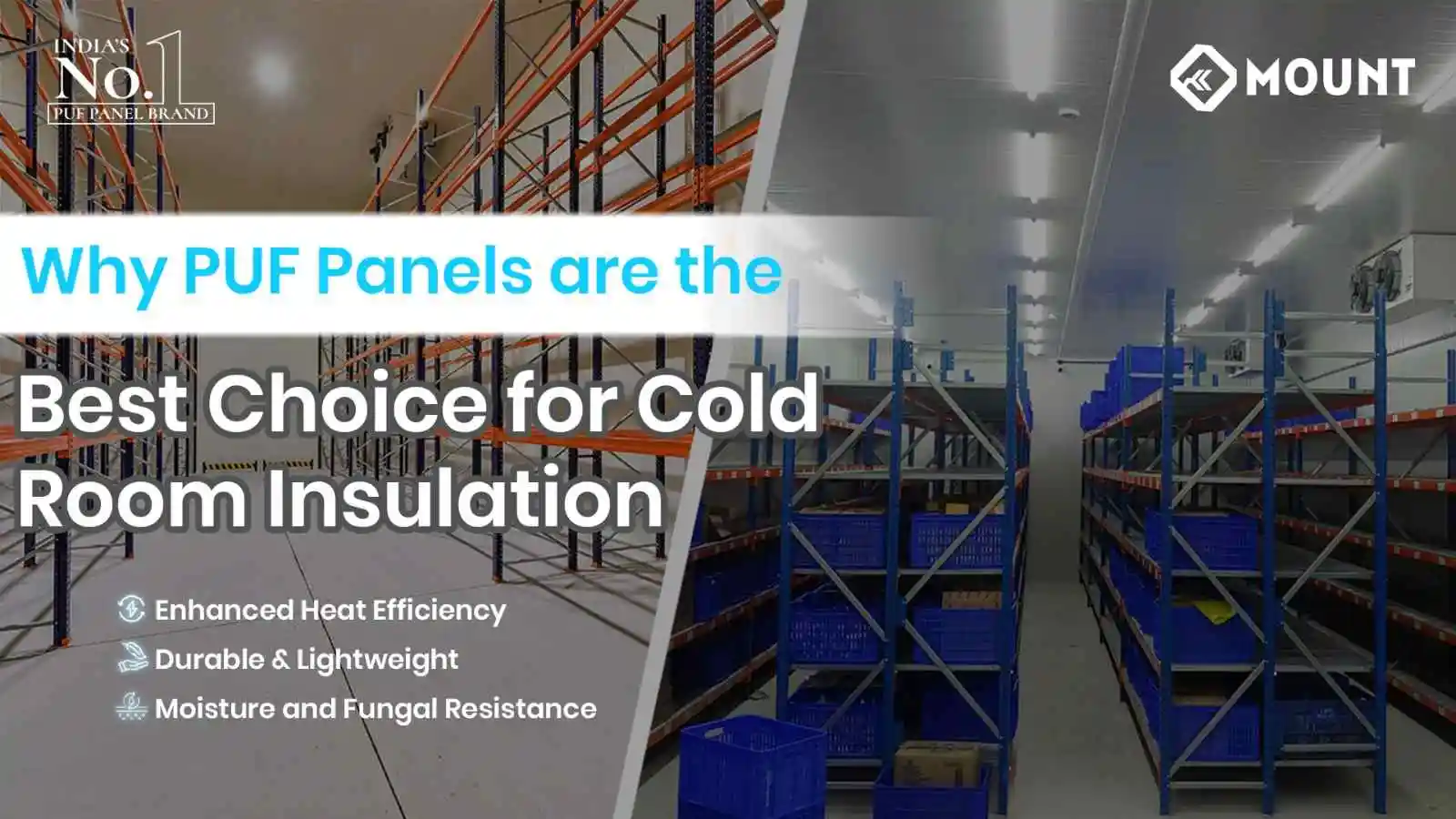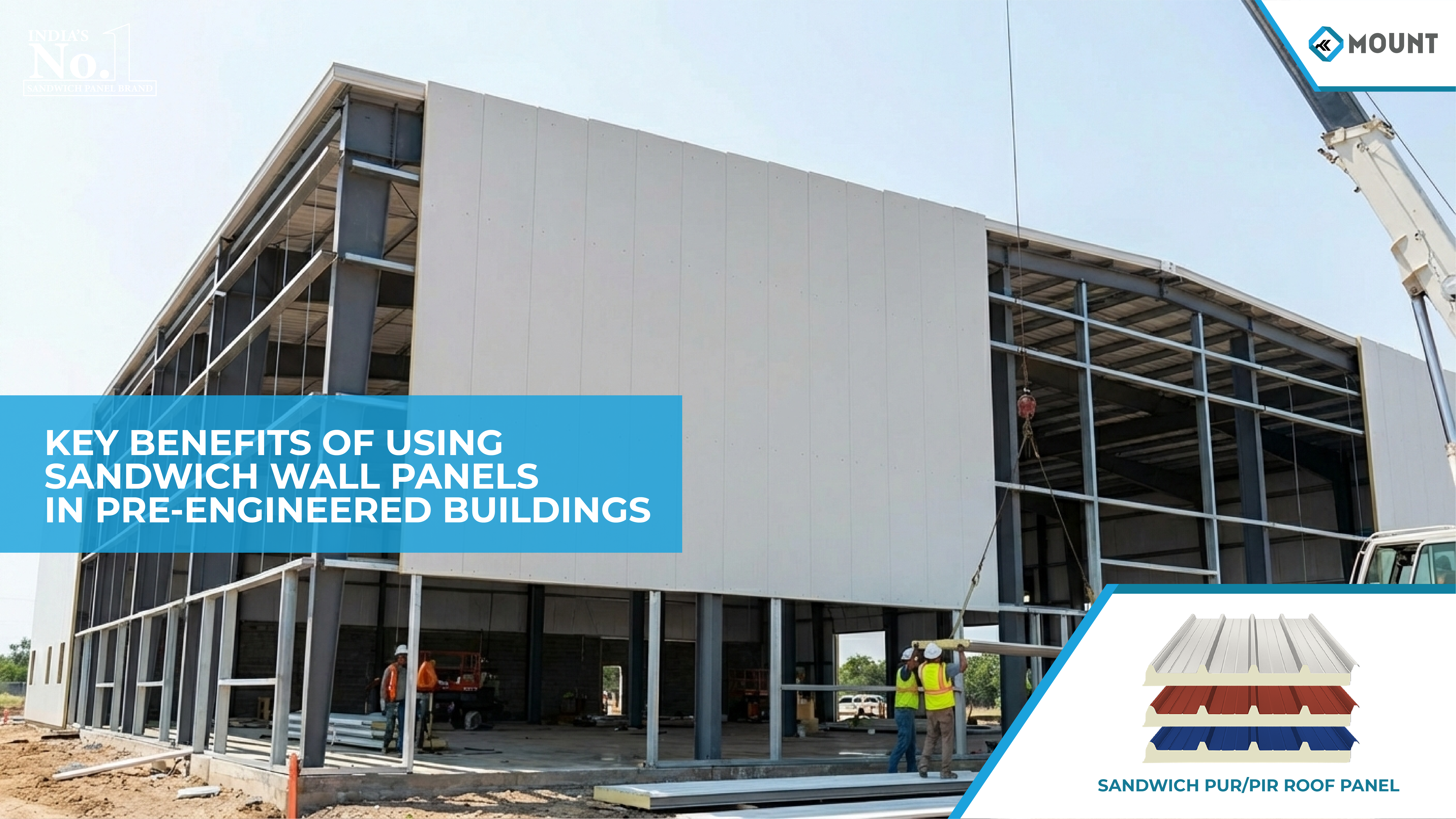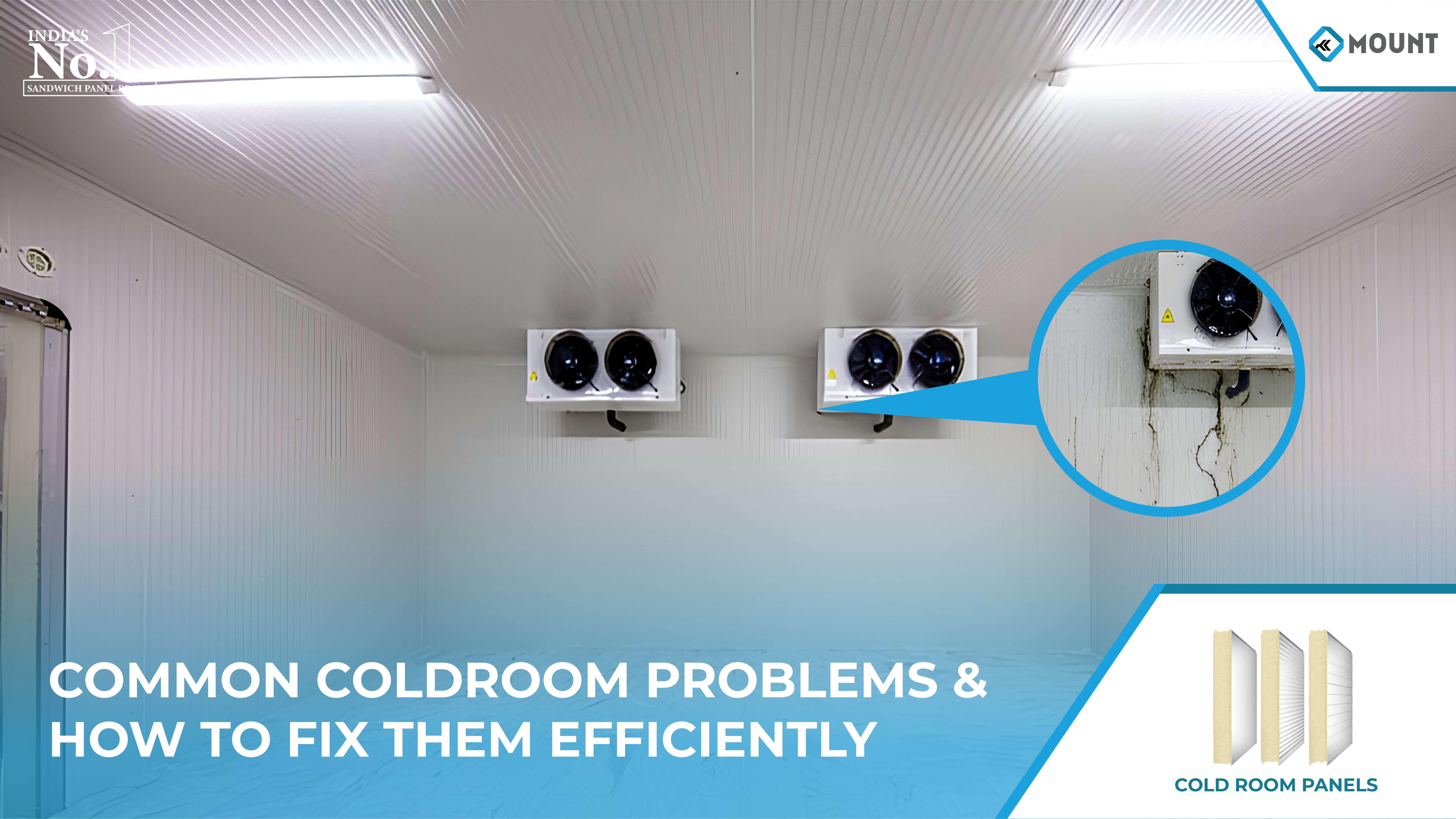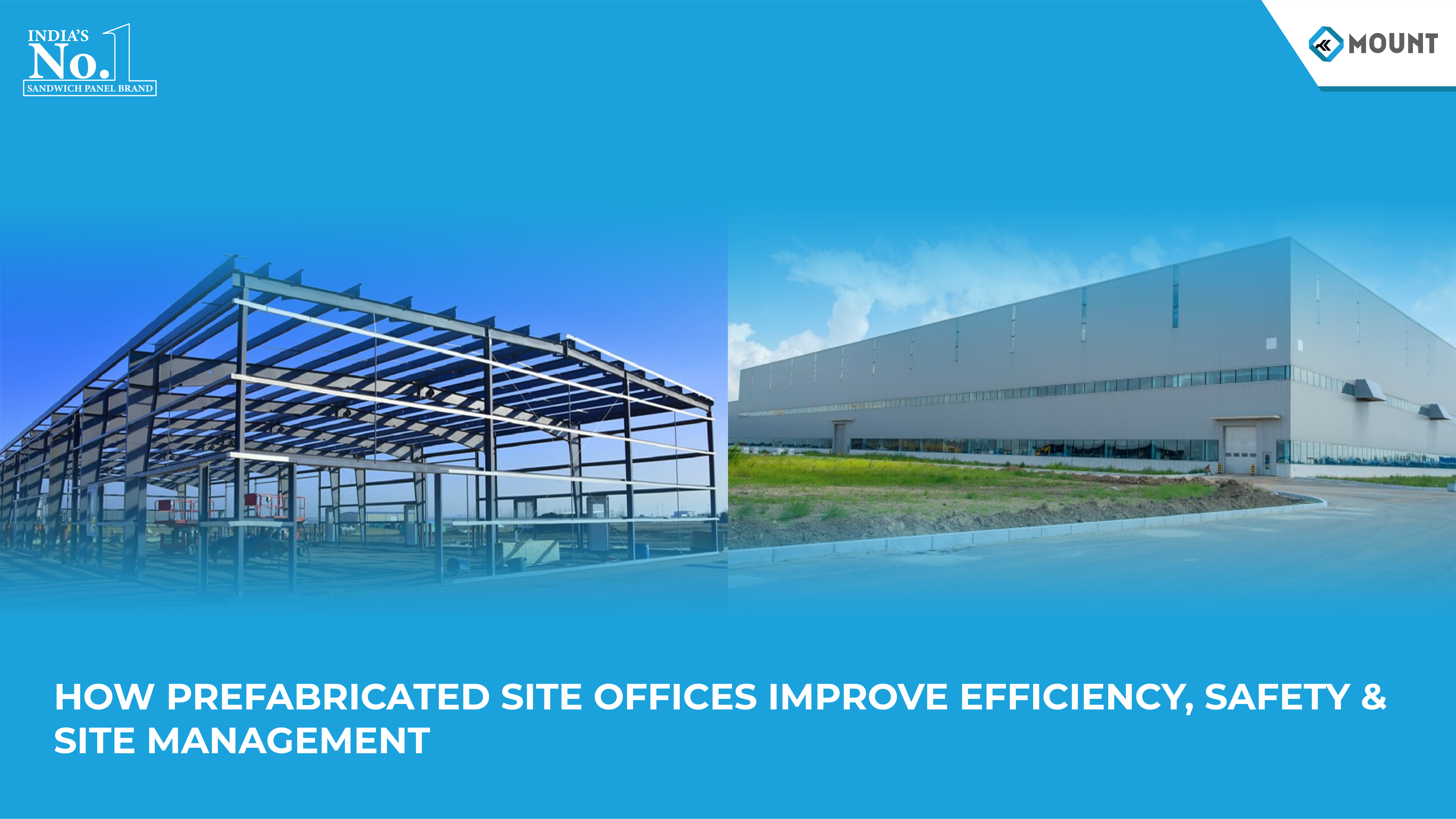
Why PUF Panels Are the Best Choice for Cold Room Insulation
Cold storage facilities play a vital role in preserving the quality and safety of temperature-sensitive products across various industries. Whether you’re storing food, pharmaceuticals, or industrial materials, maintaining optimal temperatures is non-negotiable. This is where PUF Panels come into the picture as the ultimate insulation solution. At Mount, we understand that efficient cold room insulation directly impacts operational costs, product integrity, and long-term sustainability. PUF Panel technology offers superior thermal efficiency, moisture resistance, and structural durability that make it the preferred choice for modern cold storage applications.
Understanding PUF Panel Technology
Polyurethane Foam (PUF) panels represent a breakthrough in insulation technology. These wall sandwich panels consist of a rigid polyurethane foam core sandwiched between two layers of metal sheets, typically made from galvanised steel or aluminium. The closed-cell structure of the foam creates millions of tiny air pockets that significantly reduce heat transfer. This innovative design makes PUF panels for cold room applications exceptionally effective at maintaining stable internal temperatures regardless of external climate conditions.
Mount specialises in manufacturing high-performance insulation solutions that meet international quality standards. Our panels undergo rigorous testing to ensure they deliver consistent performance in demanding cold storage environments.
Superior Thermal Efficiency and Energy Savings
One of the most compelling reasons to choose wall PUF panels is their exceptional thermal insulation properties. The R-value of PUF panels is significantly higher compared to traditional insulation materials like expanded polystyrene or mineral wool. This superior insulation capability translates directly into reduced energy consumption for refrigeration systems.
Cold storage facilities equipped with quality sandwich panels can experience energy savings of up to 30-40% compared to conventional insulation methods. The reduced heat ingress means your refrigeration equipment works less intensively, leading to lower electricity bills and extended equipment lifespan. For businesses operating multiple cold rooms or large-scale warehouses, these savings accumulate substantially over time, improving overall profitability and sustainability.
Optimal PUF Panel Thickness for Maximum Performance
Selecting the appropriate PUF panel thickness is crucial for achieving the desired insulation performance. Standard thickness options range from 20mm to 200mm, with the choice depending on your specific temperature requirements and ambient conditions. For cold rooms maintaining temperatures between 0°C to 5°C, a thickness of 80-100mm typically suffices. However, frozen storage facilities operating at -18°C or below often require panels with 120-150mm thickness for optimal thermal retention.
Mount’s technical team provides expert consultation to help you determine the ideal panel specifications for your unique cold storage needs, ensuring you invest in the right solution from the start.
Lightweight Construction and Installation Benefits
Unlike traditional brick-and-mortar cold room construction, PUF panels offer remarkable lightweight properties without compromising structural integrity. This characteristic provides multiple advantages during installation and throughout the facility’s operational life. The reduced weight minimises the load on building foundations, allowing for more flexible site selection and potentially lower construction costs.
Installation speed is another significant advantage. Pre-fabricated panels with cam-lock or tongue-and-groove joining systems enable rapid assembly, reducing project timelines by up to 50% compared to conventional construction methods. This quick installation means faster commissioning of your cold storage facility and earlier return on investment.
Moisture and Condensation Resistance
Moisture infiltration is a critical concern in cold storage environments where temperature differentials create condensation risks. PUF panel manufacturers like Mount incorporate advanced moisture barrier technologies into their products to prevent water vapour transmission. The closed-cell structure of polyurethane foam naturally resists moisture absorption, maintaining insulation effectiveness even in high-humidity conditions.
This moisture resistance prevents several common cold room problems, including mould growth, structural degradation, and insulation performance loss. By eliminating these issues, you ensure healthier storage conditions for your products while extending the service life of your facility infrastructure.
Durability and Long-Term Cost Effectiveness
When evaluating PUF panel price, it’s essential to consider the total cost of ownership rather than just the initial investment. While quality panels may have a higher upfront cost, their exceptional durability and minimal maintenance requirements deliver superior long-term value. Mount’s panels are engineered to withstand the rigours of industrial environments, including temperature cycling, impact resistance, and cleaning protocols.
Properly installed PUF insulation systems can maintain their performance characteristics for 20-25 years or more, making them one of the most cost-effective cold storage solutions available. The combination of energy savings, reduced maintenance, and extended lifespan ensures excellent return on investment.
Hygiene and Food Safety Compliance
For food processing and pharmaceutical applications, maintaining strict hygiene standards is paramount. Wall sandwich panels with smooth, non-porous surfaces are easy to clean and sanitise, helping facilities comply with food safety regulations and GMP requirements. The seamless panel joints minimise crevices where bacteria or contaminants could accumulate, creating a more hygienic storage environment.
Mount’s panels are manufactured using food-grade materials that don’t harbour pathogens or emit harmful substances, ensuring your products remain uncontaminated throughout storage.
Final Thoughts
Choosing the right insulation for cold storage facilities is a decision that impacts operational efficiency, product quality, and bottom-line profitability for years to come. PUF panels have proven themselves as the superior choice, offering unmatched thermal performance, durability, and cost-effectiveness. At Mount, we’re committed to providing premium insulation solutions that help businesses maintain optimal cold chain integrity while minimising energy consumption and operational costs. Whether you’re building a new facility or upgrading existing infrastructure, investing in quality PUF panel technology ensures reliable, efficient cold storage performance that stands the test of time.
Frequently Asked Questions (FAQs)
Q: What is the typical lifespan of PUF panels in cold room applications?
A: High-quality PUF panels from reputable manufacturers like Mount typically last 20-25 years or more when properly installed and maintained. The panels’ durability depends on factors such as installation quality, environmental conditions, and maintenance practices.
Q: How do I determine the right PUF panel thickness for my cold storage facility?
A: The appropriate thickness depends on your target storage temperature and ambient conditions. For chilled storage (0-5°C), 80-100mm panels are usually sufficient. Frozen storage facilities (-18°C or below) typically require 120-150mm thickness. Consulting with experienced manufacturers helps ensure optimal specifications.
Q: Are PUF panels environmentally friendly and sustainable?
A: Modern PUF panels are manufactured using eco-friendly blowing agents that have zero ozone depletion potential. Their superior insulation properties reduce energy consumption significantly, contributing to lower carbon emissions throughout the facility’s operational life.
Q: Can PUF panels be customised for specific cold room dimensions?
A: Yes, reputable PUF panel manufacturers offer customisation services to match your specific dimensional requirements, including custom lengths, widths, and thicknesses. This flexibility ensures seamless installation and optimal performance for cold rooms of any size or configuration.


